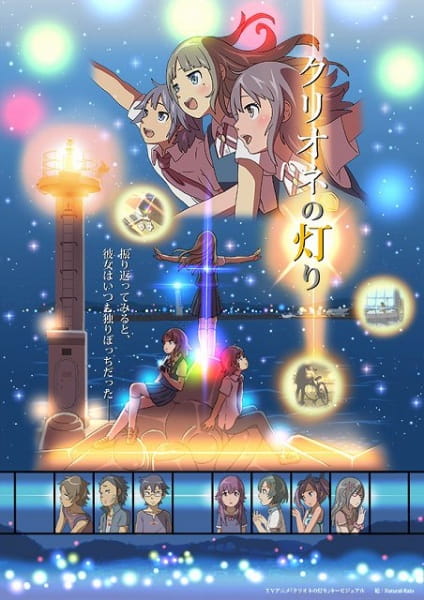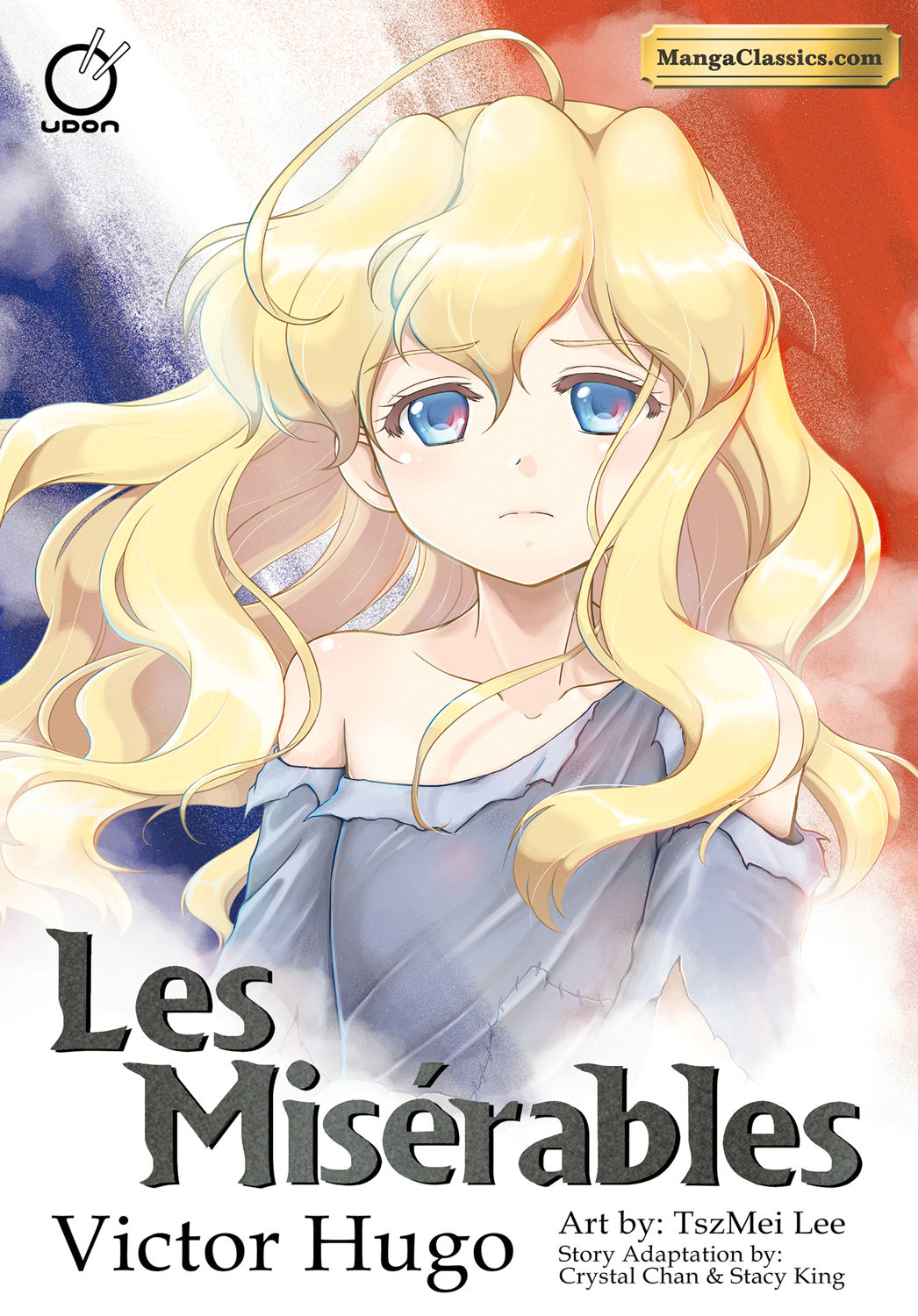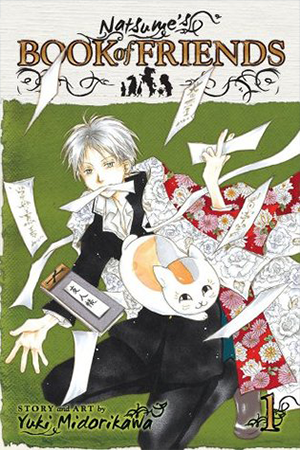
I give this moving short anime about two lovers caught in the Civil War...an 85/100!
Some time last year, I decided to hunker down and read the massive novel that is
Gone With The Wind, an epic romance taking place during the Civil War and the reconstruction period that followed. To be honest, I'm not a fan of it. If you've read my review, the tl;dr version is that it goes on for way too long, the characters were all either annoying, useless, or outright reprehensible, the plot never seemed to go anywhere, and the authoress really went out of her way to romanticize the South and make the case that slavery of people of color was good for them. Yeah...I think anyone can see how that wouldn't go over well nowadays. But the reason I bring up
Gone With The Wind is that I found out that a fansub group I follow randomly subbed an obscure anime from the late 70s called
Kinpatsu no Jeanie, which has a similar premise. Being a fan of old anime in the style of the World Masterpiece Theater, I decided to give it a try, as I wanted to scratch that WMT itch I hadn't had in a while. Seriously, I did NOT expect this anime to turn out as amazing as it did! And keep in mind, this anime was made in 1979, when the medium was still fairly young in Japan, and it's amazing to think that even in that time period, the anime industry already managed to churn out its fair share of masterpieces and great stories.
Now, for anyone who might get confused by the English title,
Jeanie With The Light Brown Hair (Which makes no sense to me because they made Jeanie's hair blonde), this is nothing like
the 1992 anime that's basically an animated biopic about Stephen Foster and his wife, Jeanie MacDowell, whom the titular song he wrote is based on. This 1979 anime does use the title for the show, and has a cover of the song used for the opening theme, but other than those two things, this iteration tells an entirely original story out of whole cloth. The story goes as follows: 15-year-old Jeanie Reed lives a nice, happy life with her family in the town of Agatha, Virginia. Five years ago, she met a nice boy, Robert McBee, and the two fell in love. But due to circumstances involving his family, he was forced to move to Pennsylvania. Robert does promise that once his situation is stable, he'll return and they'll get married. Even now, Jeanie still waits patiently for him. There's just one big problem though: The Civil War is afoot, and the two lovers find themselves on opposite sides of it: Jeanie and her family live among Confederates, and Robert is a commanding officer in the Union Army. This in and of itself is bad enough, but to complicate matters further, Jeanie discovers that her family has kept secrets that completely shatter her worldview forever. In light of these revelations, both Jeanie and Robert have to make hard decisions just to be able to survive the Civil War.
Seriously, where the hell has this anime been all my life?! This anime seemed to go out of its way to address every single issue I had with
Gone With The Wind tenfold. The anime only has 13 episodes, so completing it isn't hard for people who want to watch something short, and
Kinpatsu no Jeanie really makes optimal use of its short run time. It leaves no moment wasted, it never drags on for longer than is needed, the story is always moving forward, and it's always developing all of its characters and fleshing them out whenever possible, delivering the perfect combination of drama, humor, and heart. It helps that while the anime is limited by the confines of, well, being made in the 70s, with plenty of animation issues that hold it back, along with overly theatrical acting and sound effects that were common at the time, all of the drama it does manage to show is meaningful and brings out the best in the characters, giving them far more depth and nuance than other stories of this caliber. Continuing onto that, unlike
Gone With The Wind, which is very heavily biased towards the South,
Kinpatsu no Jeanie makes absolutely no attempt to present one side of the war as being wholly in the right. It shows that both the North and the South make their fair share of bad decisions and do their fair share of bad things while not presenting either side as being outright villainous.
On the subject of animation, it's clear that this anime was made in the late seventies, complete with shoujo-esque character designs, limited character motion, rough linework, and painted backgrounds. The animators really tried hard to make this anime look as good as they could, and even with the occasional goofs here and there, it's clear there's a lot of care put into this. But
Kinpatsu no Jeanie does have some pretty glaring animation flaws. For one, the backgrounds are beautifully painted, but during scenes where characters are either running or riding horses, when the background is scrolling past them, it often looks like the animators just looped the same backgrounds over and over again while making no attempt to make the transition look seamless, almost like a gif. Plus, there are times when the creators outright spell English words or names wrong. At several points, there are saloon signs that spell Agatha as Agata, and even Jeanie's last name is spelled as Leed instead of Reed, even though the latter is the correct spelling. Other anime did this as well, even the various World Masterpiece Theater anime, but yeah, they could have tried a little harder with that. On the other hand, the soundtrack is very pleasant to listen to and really captures the feel of old timey America, complete with harmonicas, trumpets, saxophones, banjos, and ukuleles. At one point, the anime uses the instrumentation for
Camptown Races during a saloon scene, and the only reason I even know about that song is because I heard it in an episode of
Hey Arnold.
Returning to the characters, the show makes great use of them even with its short run time. Every character, from Jeanie and her family to even minor characters who only appear in one episode, are all amazingly well developed and fleshed out, given multiple sides to their personalities, and all serve their roles perfectly, with all of them feeling fresh. Jeanie herself is a great main character, who grows as a person throughout the course of the series from a naive, sheltered, lovestruck girl to a brave, open-minded, caring young woman who is much more aware of the things going on around her, but she also has enough flaws and weaknesses to make her feel like a three-dimensional human being. The other characters also get the right amount of time in the limelight, and even the characters who look like they could be villains at first glance are not only surprisingly competent, but are given plenty of depth and nuance so that they feel like regular people just doing their jobs in a bad situation, or feel they've been wrong by the other side, rather than just incompetent villains who are evil just for the sake of it. Take note,
Gone With The Wind. Of course, the series makes no attempt to portray Jeanie and her family as being paragons of good, as they don't hide the fact that Jeanie's family does own slaves and make plenty of dubious decisions in the wake of the war, Jeanie included, but given the time period, I think it makes some degree of sense, and I'm glad the creators didn't try to whitewash history or make the main characters pure paragons of goodness. Seriously, the people who wrote the scripts for this series are incredible, as every single episode was solid, engaging, had great build-up, delivered excellent characterization, and a conclusion that was believable, intelligent, and pushed the characters even further in terms of their development, even if it still left some things unresolved.
However, as much as I really want to praise this anime to high heaven, and believe me, I really wish I could, this series does have another glaring flaw holding it back, alongside the limited animation. There are times when the anime really wants to make things more convenient for itself in order for the plot to happen, so it often contradicts things it did in previous episodes, forcing the viewers to really stretch their suspension of disbelief. What do I mean? Here's an example: In one episode, Jeanie, a nun named Elizabeth, and a group of orphaned children try to strike out on their own when the war starts getting violent. The journey is shown as being very dangerous, and they almost lose their lives on multiple occasions just getting to a certain location. But after they get to said location, the series just forgets that the first way of getting there was perilous, and the characters always manage to find their way to and from that location no matter what, often within minutes, even though the episode showing how Jeanie and friends got there showed that said location was not easy to access. Secondly, one character is shot and falls down a ravine, only to somehow not only survive, but climb out of said ravine with zero explanation as to how he survived and got out of there. A third example, and I'm going to keep this as spoiler free as I can: Near the end of the series, a character commits suicide by shooting himself in the head with a gun, but he's shown completely unharmed, with no blood or brain matter whatsoever, and there isn't a single mark on him even though he's explicitly confirmed to be dead. For this one though, I can only assume that the creators weren't allowed to show the character with a hole in their head and leaking out blood, since
Kinpatsu no Jeanie is considered a children's series, and I heard that graphically depicting suicide in a children's anime is considered taboo in Japan in recent years due to the country's high suicide rates...though how they're allowed to actually show characters outright dying, along with showing small amounts of blood at all, is beyond me. Not that I mind, as I respect Japan for having higher, looser standards for their kid's anime and not being afraid to show frightening content. Oh, and for anyone wondering: There is a person of color who dies for the purpose of advancing a white character's development. So yeah, even back in the seventies, Japan was still far behind in terms of non-racist portrayals of minorities, even though the character of color in question is treated with respect and given a reasonable amount of development, and not a stereotype, but I know plenty of people will still take issue with it in regards to the racial implications. But I'm not the best person to speak about this in detail, as I'm sure there are others who can go into this in more depth than I'm capable of doing.
For what this series is though, I can wholeheartedly say that I'm glad I decided to take a chance on this show. I would never have even known of its existence had I not randomly stumbled across Old Castle Fansubs' announcement that they subbed the whole thing, and since before then
Kinpatsu no Jeanie had never received any subs ever, I think it's good that it finally got pulled out of obscurity. It's easier to find now if you want to check it out. To me, this is what
Gone With The Wind should have been like: a short, moving, romantic epic about flawed but good people just trying to make their way through a terrible time. It's shows like
Kinpatsu no Jeanie that remind me that children's anime can be refined and mature, and not just silly entertainment for the sake of it. If you ever want to scratch that historical fiction itch, please give the 1979
Kinpatsu no Jeanie anime a try!























